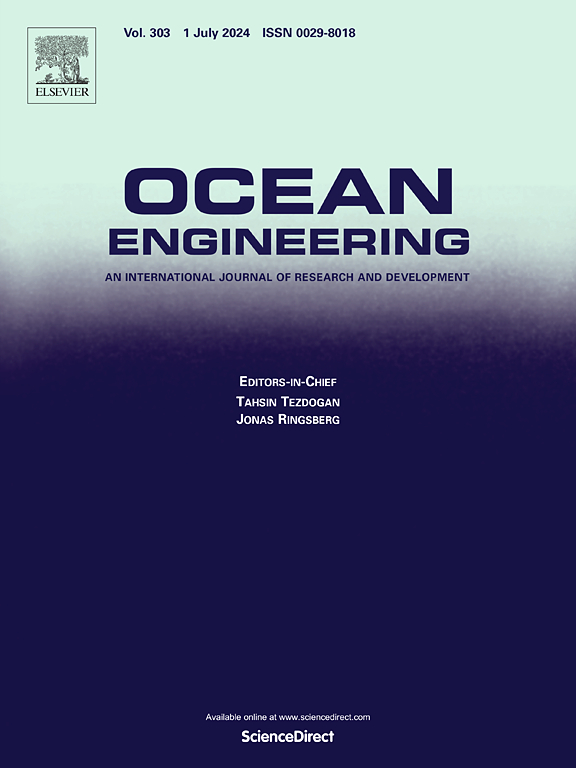整合天气信息路线和能源优化,实现可持续的海上运输
IF 5.5
2区 工程技术
Q1 ENGINEERING, CIVIL
引用次数: 0
摘要
随着工业的扩大和与国际运输有关的燃料消耗的增加,有效利用车辆,特别是货船已变得极其重要。虽然已经提出了许多解决方案来解决这个问题,但许多解决方案都受到诸如不准确或不完整模型等限制的阻碍。本研究采用半经验模型来精确估计船舶对波浪和其他环境因素的阻力。随后,使用非线性代理模型进行路线优化,重点关注指定的货物交付港口。在第二阶段,船舶路由问题(VPR)通过纳入诸如加油操作、时间窗口以及将1至3艘船舶分配到单个起点和五个目的地等因素来解决。该问题旨在设计最优路线,以最小化运营成本,旅行时间和排放,同时遵守实际约束,如燃料容量和港口调度。研究结果表明,路线优化可以使燃油消耗、行驶距离和行驶时间平均减少7%以上。此外,对各种货物交付场景的分析表明,与使用多艘船相比,为有限数量的目的地部署一艘船的效率更高。然而,预计增加船舶数量相对于有限的目的地可能会产生特殊的结果。本文章由计算机程序翻译,如有差异,请以英文原文为准。
Integrating weather-informed routing and energy optimization for sustainable maritime transportation
With the expansion of industries and the increasing fuel consumption associated with international transportation, the efficient utilization of vehicles, particularly cargo ships, has become critically important. While numerous solutions have been proposed to address this issue, many are hindered by limitations such as inaccurate or incomplete models. This study employs a semi-empirical model to precisely estimate ship resistance to waves and other environmental factors. Subsequently, route optimization is conducted using a nonlinear surrogate model, focusing on ports designated for cargo delivery. In the second phase, the Vessel Routing Problem (VPR) for ships is addressed by incorporating factors such as refueling operations, time windows, and the allocation of 1 to 3 ships to a single origin and five destinations. This problem aims to design optimal routes to minimize operational costs, travel time, and emissions, while adhering to practical constraints such as fuel capacity and port scheduling. The findings demonstrate that route optimization can achieve a reduction of more than 7 % on average in fuel consumption, travel distance, and journey time. Additionally, the analysis of various cargo delivery scenarios indicates that deploying a single ship for a limited number of destinations is more efficient compared to utilizing multiple ships. However, it is anticipated that increasing the number of ships relative to a limited number of destinations could yield exceptional outcomes.
求助全文
通过发布文献求助,成功后即可免费获取论文全文。
去求助
来源期刊

Ocean Engineering
工程技术-工程:大洋
CiteScore
7.30
自引率
34.00%
发文量
2379
审稿时长
8.1 months
期刊介绍:
Ocean Engineering provides a medium for the publication of original research and development work in the field of ocean engineering. Ocean Engineering seeks papers in the following topics.
 求助内容:
求助内容: 应助结果提醒方式:
应助结果提醒方式:


